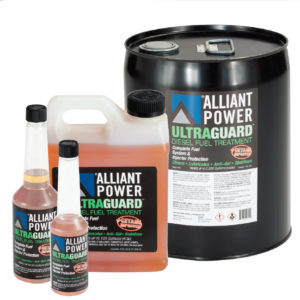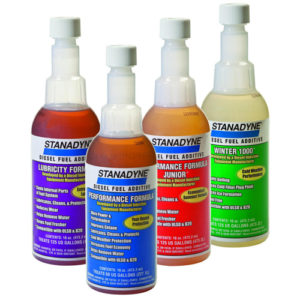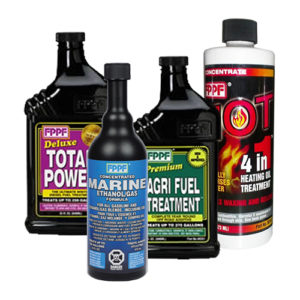Diesel fuel additives are essential to keeping your diesel fuel system clean and running smooth. They can increase your fuel system’s power and fuel economy and protect against low sulfur fuels that will wear down your vehicle or engine. We carry a comprehensive assortment of additives to help keep you up and running for the long haul.
Alliant Power Additives
All-season, multi-functional diesel fuel treatment providing superior fuel system protection under all operating conditions.
Stanadyne Additives
The most comprehensive, multi-function diesel fuel additives available that are developed by a fuel injection systems manufacturer.
FPPF Additives
Complete line of high-quality, technologically advanced additives tailored for specific diesel industries. Try them today!

A Note From Our Technical Director About Additive
Our experience shows that Additives can only help improve the quality of today’s diesel fuel and therefore the life of the diesel fuel injection components we rebuild. As Diesel Experts, it is incumbent upon us to relay this information to our customers.
The old policy of “no additive” was good 15 to 20 years ago when the refining and blending process produced a higher quality fuel. However, those days are behind us.
Technically speaking, diesel fuel is now ultra-low sulfur diesel fuel – and while that does not necessarily make the fuel bad, the process of hydrogenating the fuel to remove the sulfur reduces its lubricity substantially and enhances its emulsification of water. Both the lack of lubricity and the introduction of water are the leading cause of pump & injector failure.
Today, Diesel fuel is blended with a minimum of 5% biodiesel (B5) or 20% biodiesel (B20). While this adds back some of the lubricity, it also substantially increases the amount of water content that can “hide” in the fuel. Biodiesel will lower both the energy of the fuel and the Cetane. Biodiesel also leaves behind fuel deposits in the fuel system, another contributing issue to poor performance or failure if left untreated.
Finally, diesel fuel Cetane requirements are now down to 40 versus the 44 of years ago. Our customers would be lucky to find fuel on the open market with a 40 Cetane rating.
Diesel fuel additives address all of the issues noted above. UltraGuard, Stanadyne and FPPF both enhance lubricity and Cetane – and in different ways, address the emulsification issue.
Technical Director
Seidel Diesel Group



